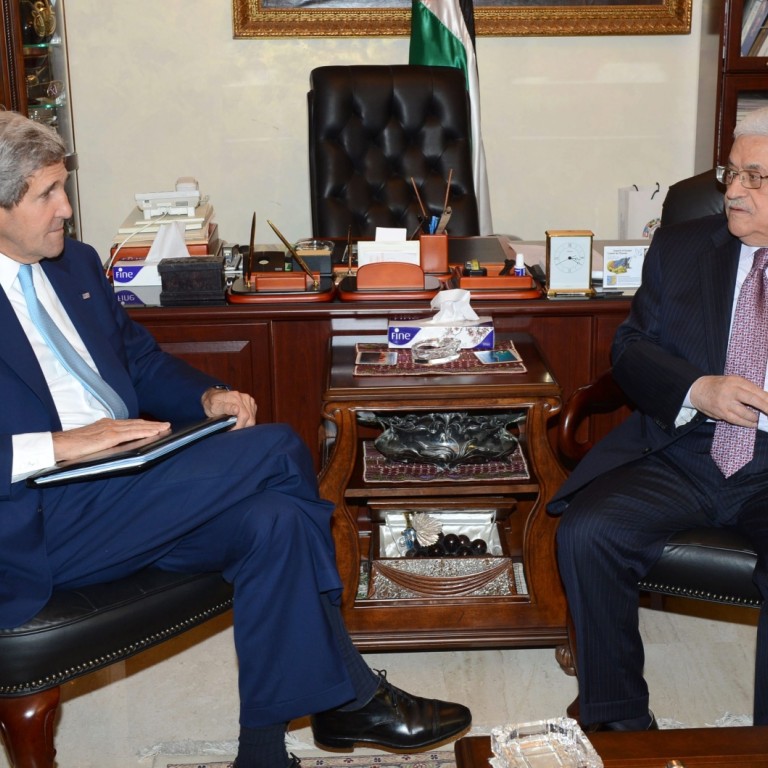
Kerry ‘closer’ in Mideast talks push
US Secretary of State John Kerry said on Wednesday that his intense diplomacy in six visits to the Middle East was bearing fruit, narrowing gaps between Israel and the Palestinians.
Kerry met in neighbouring Jordan with Palestinian president Mahmud Abbas late on Tuesday and again on Wednesday as he also outlined his ideas to kickstart direct negotiations to other top Arab officials and ministers.
The US envoy, who has made the resumption of Middle East peace talks after a three-year break a priority since he took office on February 1, said the goal was getting nearer.
“Through hard and deliberate, patient work, and most importantly through quiet work, we have been able to narrow those gaps very significantly,” Kerry told reporters.
“We continue to get closer and I continue to be hopeful that the two sides will come to sit at the same table,” he added, standing alongside his Jordanian counterpart Nasser Judeh.
Kerry acknowledged that differences remained between the two sides, despite his dogged shuttle diplomacy which saw him hold hours of talks with both Abbas and Israeli Prime Minister Benjamin Netanyahu on his visit last month.
“There are still some elements and some language that needs to be agreed upon and worked out. This is normal, and I’m not going to detail specifics,” he said.
The Palestinians insist that they will not return to the negotiating table until Israel agrees to accept as a baseline the lines that existed before the 1967 Middle East war, when it occupied the Gaza Strip and West Bank.
They say Israel needs to freeze all settlement construction in the occupied lands, including in east Jerusalem, which it annexed in a move never recognised by the international community.
Israel rejects such “preconditions”.
As yet it is understood there is no Israeli agreement to meet demands for either a settlement freeze or a prisoner release.
Arab League chief Nabil al-Arabi and Gulf Arab envoys, who were also in the Jordanian capital, however, gave strong backing to Kerry’s peace push.
“The Arab delegates believe Kerry’s ideas... constitute a good ground and suitable environment for restarting the negotiations,” a statement said.
His proposals “lay the proper foundation to start the negotiations especially on the political, economic and security areas,” the statement added.
A team of experts has been drawing up a plan to attract some $4 billion in private investment to shore up the struggling Palestinian economy, which Kerry repeated could boost GDP by 50 per cent over three years.
Kerry also highlighted efforts to address Israel’s security concerns, pointing to the role of General John Allen, who has been dispatched to the region as an adviser to the Pentagon on Middle East security issues.
The general would be working with the Israeli forces and would soon visit the West bank to meet the Palestinians, “to make evaluations on a professional military basis about the nature of threats,” Kerry said.
And he urged Israel to “look hard” at a decade-old Arab peace blueprint which he said “promises Israel peace with 22 Arab nations and 35 Muslim nations -- a total of 57 nations -- that are standing and waiting for the possibility of making peace with Israel.”
Meanwhile, the nominee to be the next US ambassador to the United Nations, Samantha Power, said if she were confirmed, she would push for Israel to have a seat on the 15-member Security Council.
Israel’s “legitimacy should be beyond dispute, and its security must be beyond doubt,” she told US lawmakers.
A Palestinian official, who asked to remain anonymous, said things were moving and Kerry was “determined” to announce a resumption of talks before he leaves the region at the end of the week.
But the atmosphere has been clouded by an EU decision barring any investment in Jewish settlement projects which has incensed Israel.
In a phone call with Kerry on Wednesday, Netanyahu said the EU move was “damaging efforts to restart the talks” with the Palestinians, an Israeli official said.
There are no immediate plans for Kerry to visit Israel and meet Netanyahu.
But it was understood that he was planning to prolong his visit to Jordan into late Thursday, amid rumours that Abbas was to meet with the PLO leadership to discuss Kerry’s ideas.
